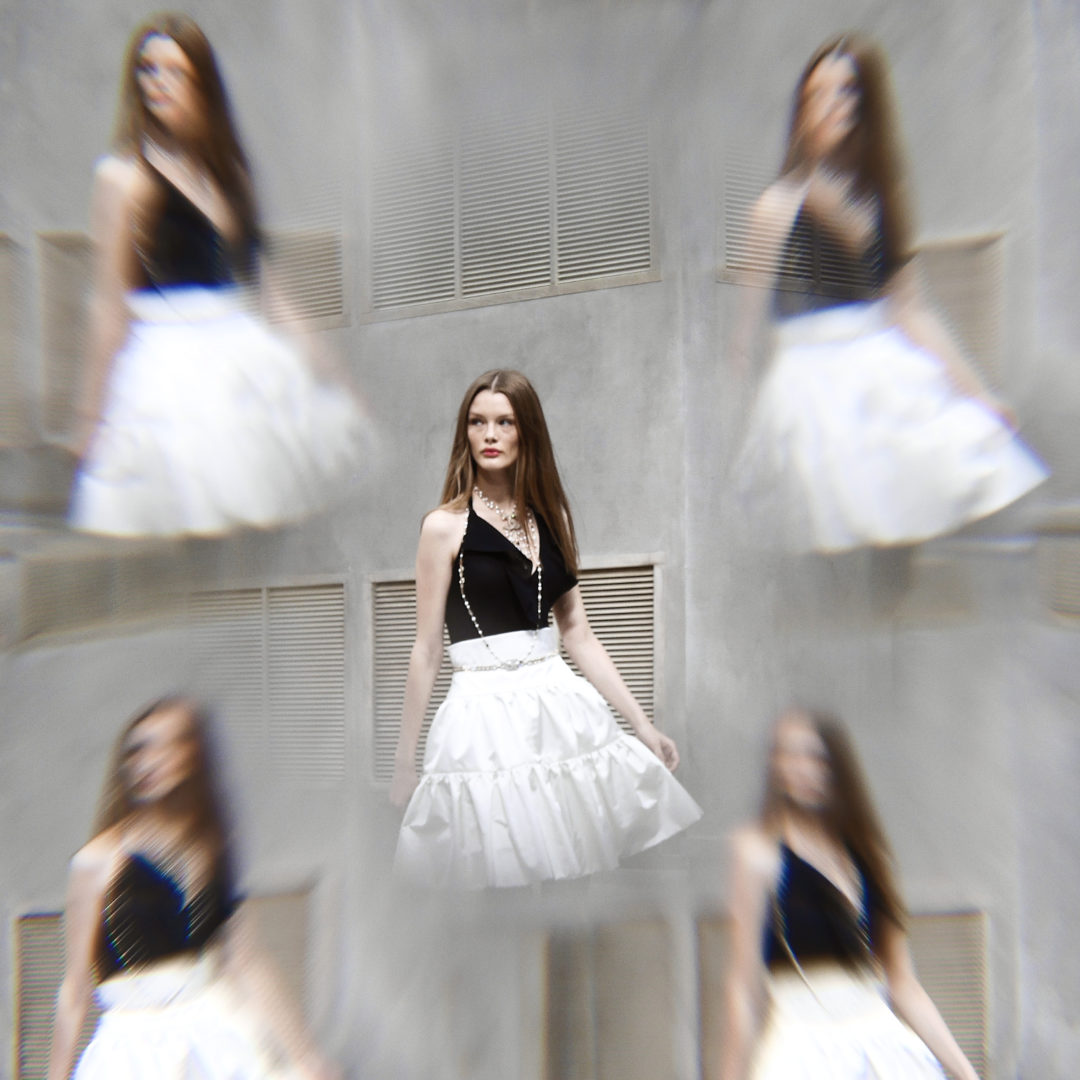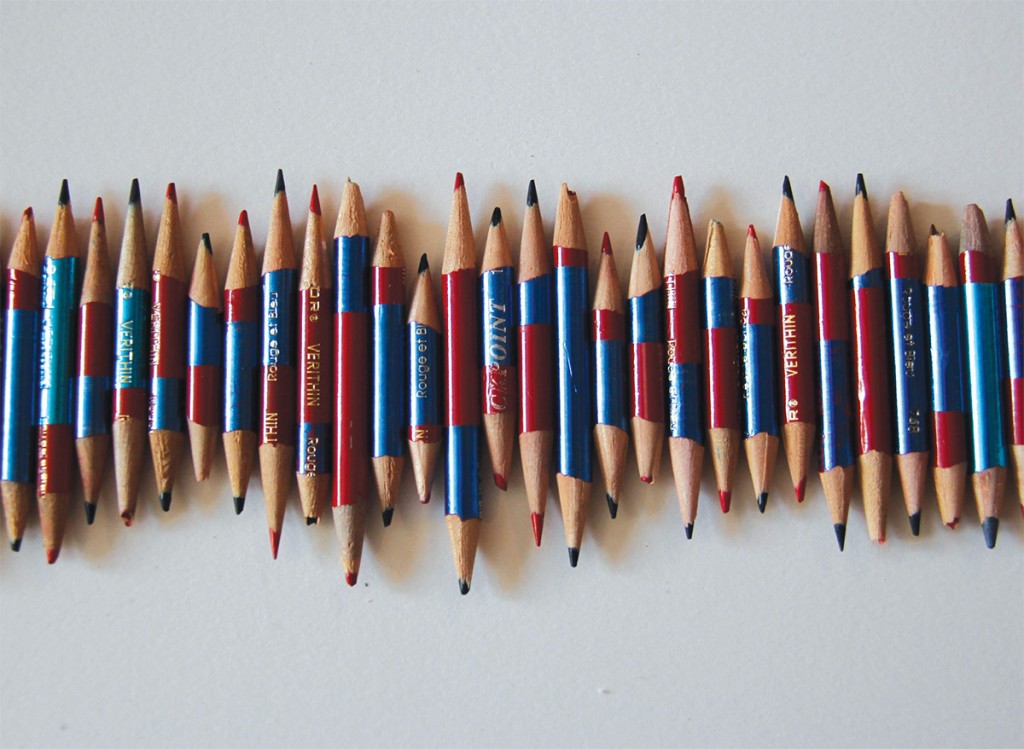
REFLECTING ON THE CURRENT ETHICAL ISSUES WITHIN THE FASHION INDUSTRY WITH THE LATE RUWEN OGIEN’S PHILOSOPHICAL WORKS.
By Crash redaction
Photo : Kristiina Hauhtonen
While some of the backstage of the fashion industry is going front page as a bombshell, amid the men’s fashion weeks, Crash remembers a meeting with the now-late Ruwen Ogien from our archives issue crash 55. The philosopher whose work was tackling the complex issue of ethics was then preparing a book on the undesirables. At the exact minute of our difficulty negotiated meeting to talk about freedoms, Ruwen Ogien calls me : “ I don’t think we can do this interview.” But why not? “Because I’m covered in blood: I was lost in philosophical reflection and I walked straight through a café window.” Indeed. Bloodied face and broken, livid, rattled body. I took him to the hospital. Of course, he didn’t have his papers. A free man goes without papers. Just like the undesirable. At nigh in the emergency room, an injured man is rarely desirable. While waiting for him to become desirable, we talked. Of freedom of course, but also of domination, persecution, poetry. Dogs barking. In a word: philosophy.
The undesirable, a fragile body
What is political freedom? One of the most classic answers is the following: “Being politically free means having no master, being safe from domination.” A slave subject to his master, a wife to her husband, or a worker to his boss is not free according to this definition. Nor is the injured man in the emergency room, subject to the authority of the nurse, who in turn is subject to the “system.” “But even though concepts of submission and domination offer a strong idea of freedom, they are insufficient, because there are situations in which we lack freedom, not because we are dominated, exploited, or subjugated by another, but because the other no longer even tries to dominate, exploit, or subjugate us: they purely and simply eliminate us.” Hannah Arendt expressed this same point of view when analyzing the condition of the exiled, stripped of their nationality: “Their defect…, isn’t that they are oppressed, but that no one even bothers to oppress them.”
Thus is the injured man in the emergency room. At first they try to dominate him – “we NEED your papers!” – then they ignore him, leave him in a corner, forget about him, and no longer ask him anything. As the hours of the night tick by, the fragile body of Ruwen Ogien itself becomes undesirable.
“Undesirables are not free, not because they are subjugated, but because no one even tries to subjugate them. Immigrants can be taken in and exploited (or ‘dominated’), but they can also be chased out, judged, questioned, and finally eliminated. Undesirables are not those whose ability to work or procreate we use for our own benefit. No, they are those whom we lock up, isolate, and execute because we no longer want them: the political dissidents, gender and religious minorities that we harass, deport, and banish; illegal workers that we hunt down in order to ship them back to their country; the Romani whose lives we make unbearable; so-called ‘incorrigible’ criminals who receive no clemency.”
“Being politically free therefore means being safe not only from domination, but also from persecution. However, a liberal democratic political system is characterized precisely by the fact that it tries to prevent persecution, in that it prohibits any coercive action directed against individuals in a given area due to their lifestyle, religion, or nationality. As long as they are causing no harm to others, there is no reason to cause any harm to them. But liberal democracies should also limit the interference in political life of power belonging to the wealthiest classes. All theorizers of democracy are aware of this fact. Because if the power of the wealthiest (which goes beyond the power of money) is not limited, then all sorts of manipulation are possible. The drive to get rid of so-called ‘undesirable’ foreigners can perfectly be understood as expressing the interest of the wealthiest classes.”
We must thus grasp the difference between domination and persecution, two related yet distinct concepts – as well as the link, or lack thereof, between “undesirable” and “useless.” It is possible to be subjugated without being persecuted and persecuted without being subjugated. To reiterate, dissidents, illegals, Romani, and “incorrigible” criminals are more persecuted than dominated. An even more fragile social body. As for the connection between the useless and undesirable, it seems to depend on the context. “Concerning persecution in terms of religious intolerance, homophobia, racism, or xenophobia, the undesirables are never truly ‘useless.’ They are simply undesirable. But in the context of economic exclusion, it’s no metaphor to talk about superfluous or useless workers. Undesirables are such because they become ‘useless’.”
And Ruwen Ogien evokes this passage of Richard III in which Shakespeare has the Duke of Gloucester (the future Richard) say: “I-that am curtail’d of this fair proportion, / Cheated of feature by dissembling nature, / Deform’d, unfinish’d, sent before my time / Into this breathing world scarce half made up, / And that so lamely and unfashionable / That dogs bark at me as I halt by them.” The undesirable is thus always defined as such by others, man or dog. Since undesirables are thus stigmatized by the definition of others, the most efficient means of regaining their liberty will probably be to rethink themselves as desirable towards and against everything, to claim this mad autonomy – a mental freedom stronger than persecution. And let the dogs bark.
Poetry, then: more approachable than philosophy? Ruwen Ogien isn’t so sure. But if there’s one thing he’s certain of – this man of well-meaning doubt – it’s that philosophy IS difficult. It is questions, always – a strategy of doubt and possibly of avoidance: “The theme of undesirables affects me, strikes me “poetically”; but what does it mean? What are its implications? What does it lend to political reflection? I don’t really know yet. I still have to lose myself in philosophical reflections, while, if possible, avoiding the next window.”
Written by Barbara Polla.









